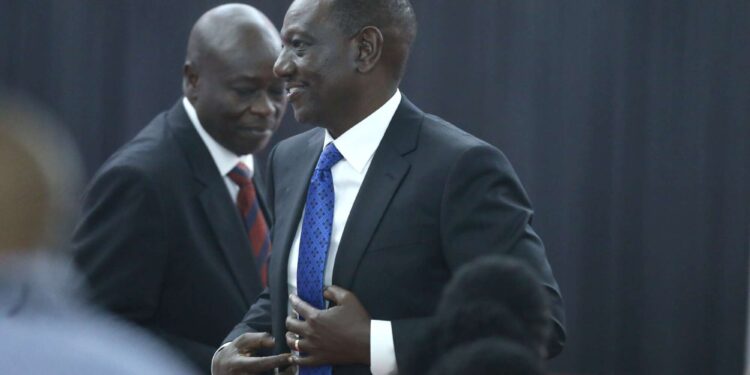The impeachment of Rigathi Gachagua as Deputy President marked a pivotal moment in Kenya’s political landscape, igniting debates about leadership, tribal politics, and governance. Gachagua, whose tenure was plagued by controversies, was widely viewed as a tribal-based leader who prioritized the Mt. Kenya region over national interests, often to the detriment of a unified Kenya. His removal, though polarizing, underscores the need for leaders who prioritize national unity and development over regional and personal political ambitions.
Gachagua’s Leadership: A Regional Agenda
Gachagua’s tenure was characterized by a consistent focus on issues affecting the Mt. Kenya region, often at the expense of addressing challenges facing the entire nation. His speeches and political activities revealed a pattern of appealing to ethnic loyalties rather than fostering a cohesive national agenda. This approach alienated many Kenyans and highlighted the dangers of tribal politics in a nation striving for unity and progress.
By centering his political rhetoric on the Mt. Kenya region, Gachagua not only marginalized other regions but also undermined the principles of inclusivity that are essential for effective governance. Critics argue that his approach was a calculated move to consolidate political power ahead of the 2027 elections, prioritizing his ambitions over the country’s broader needs.
Kithure Kindiki’s Response: Leadership with Dignity
Deputy President Kithure Kindiki, Gachagua’s successor, has taken a markedly different approach. Addressing critics who questioned his perceived silence, Kindiki emphasized that true leadership is not about seeking popularity but about delivering results. Speaking at a church service in Kamumu, Mbeere North, Kindiki urged mutual respect between leaders and citizens, highlighting the importance of dignity in leadership.
“People assume we have nothing to say,” Kindiki remarked. “But leadership is not about making noise; it’s about delivering results and carrying oneself with dignity.” His comments reflect a commitment to maintaining decorum and focusing on substantive issues rather than engaging in populist tactics.
Kindiki’s reserved leadership style stands in stark contrast to Gachagua’s tribal-based approach. By advocating for respect and civility, Kindiki seeks to foster a political culture that prioritizes national unity and development over divisive rhetoric.
The Historical Context of Deputy Presidents in Kenya
The removal of Rigathi Gachagua is not an isolated event but part of a broader pattern in Kenya’s political history. From Jaramogi Oginga Odinga’s resignation during Jomo Kenyatta’s administration to the sidelining of William Ruto during Uhuru Kenyatta’s presidency, the role of deputy presidents has often been fraught with tension. These conflicts are often fueled by political ambition and divergent agendas between presidents and their deputies.
Under the 2010 Constitution, the deputy presidency was enshrined as a means to stabilize governance. However, this constitutional protection has sometimes emboldened deputies to act as co-presidents, leading to power struggles. Gachagua’s tenure exemplifies this challenge, as his actions were often perceived as undermining President Ruto’s agenda.
A Call for National Unity and Leadership Reform
Rather than perpetuating tribal politics, Kenya must prioritize leaders who can bridge regional divides and promote national cohesion. Gachagua’s removal highlights the urgent need for a leadership culture that transcends ethnic loyalties and focuses on collective progress.
The example set by Kithure Kindiki offers a blueprint for such leadership. By emphasizing respect, dignity, and results-oriented governance, Kindiki is positioning himself as a leader committed to national interests. His approach underscores the importance of fostering a political environment that prioritizes unity and development over personal and regional ambitions.
Lessons for the Future
Kenya’s history of deputy presidents being sidelined or clashing with their bosses reflects a deeper issue in the country’s political structure. To address this, leaders must understand their roles as collaborators rather than competitors. At the same time, citizens must demand accountability and reject leaders who exploit ethnic divisions for political gain.
President William Ruto’s decision to replace Gachagua with Kindiki was a bold move aimed at ensuring stability and unity within his administration. While controversial, it underscores the need for deputies who align with the president’s vision and contribute to national development rather than pursuing their own political ambitions.
As Kenya looks to the future, the focus must shift from tribal politics to leadership that unites and uplifts the entire nation. This transformation requires not only political will but also an informed and engaged citizenry committed to holding leaders accountable to the ideals of inclusivity and progress.










